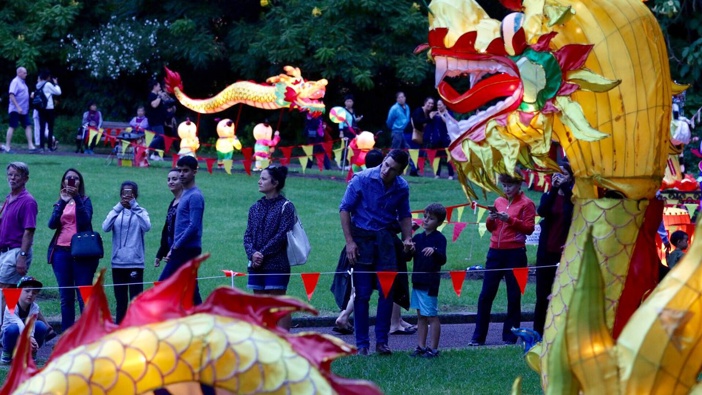Chinese New Zealanders fear for their safety and many had to change the way they live to avoid discrimination because of their ethnicity amid the Covid-19 pandemic, a new report finds.
The report by the Human Rights Commission, Racism and Xenophobia Experiences in Aoteaora during Covid-19: A Focus on Chinese and Asian Communities, found four in 10 respondents experienced discrimination since the beginning of the pandemic.
But the rates were higher for tangata whenua (55 per cent), Chinese (54 per cent), Pacific (50 per cent), and Asian (49 per cent) respondents.
Chinese respondents reported much greater concerns about their personal safety compared with others.
About half the Chinese, Asian, and Māori respondents said the discrimination they experienced had a negative impact on their mental wellbeing and their sense of belonging in New Zealand.
"The pandemic feeds fear, which in turn is manifesting itself in racism and discrimination. We must not forget that the virus is the problem and not people, especially as we find ourselves in Covid lockdown again," race relations commissioner Meng Foon said.
Most common forms of discrimination reported by respondents were online abuse and being stared at in public.
They also experienced being excessively avoided beyond the usual social distancing and receiving negative comments or abuse in person.
Many said they had to change their behaviour to avoid discrimination, like choosing to stay home and keeping away from groups of people.
"No one should have to change their behaviour to avoid risking discrimination, made to feel they don't belong, worry about their public safety, or experience negative mental wellbeing because of discrimination or racism," Foon said.
"Everyone deserves to be treated well, to live in a safe community, free from discrimination, and to live a life of dignity."
The commissioner said it was an "unfortunate byproduct" of Covid-19 that certain groups are blamed and vilified for their perceived role in the outbreak.
"Whether it was Pacific people in the resurgence last year or New Zealanders returning home from overseas, there is a racialising of this disease that is discriminatory," he said.
Foon said we all have a responsibility to ensure workplaces, public spaces and communities are safe and free from discrimination.
Respondents were recruited online by Nielsen's external panel partners, Dynata and Toluna and 1904 people aged 18 years and over were quizzed for the survey.
Nearly one in five said they experienced more discrimination since the start of the outbreak despite going out less and Chinese respondents were more than twice as likely as others to say they have experienced this.
Nearly half or 47 per cent of Chinese respondents reported knowing of a friend or family member who received verbal abuse in a public space, compared with just 17 per cent among the whole sample.
Also nearly half, or 46 per cent, said that this had a negative impact on their mental wellbeing, and 40 per cent said that it had a negative impact on their sense of belonging in New Zealand.
Chinese, Asian and Māori respondents reported much greater concerns about their personal safety compared with New Zealand Europeans.
More than four in 10 Chinese respondents had personal concerns about their own safety and about how their loved ones will be treated.
Half of the respondents were unsure of how to support themselves or others going through these experiences.
Foon said the findings highlighted the importance of data collection and reporting by the police of hate incidents that are potentially motivated by racism to help design prevention strategies.
The commission, alongside the Government, was developing a national action plan against racism.
"Now more than ever, we need an urgent government plan to address institutional and interpersonal racism against Māori, ethnic and some religious communities who experience racial discrimination," Foon said.
text by Lincoln Tan, NZ Herald
Take your Radio, Podcasts and Music with you










